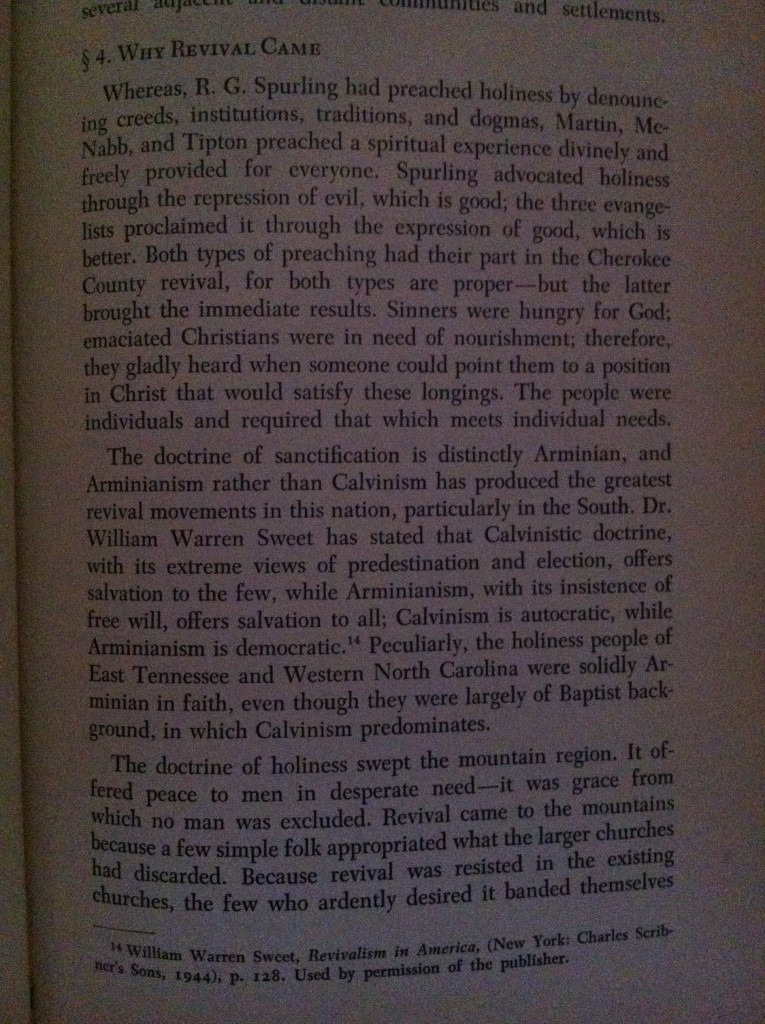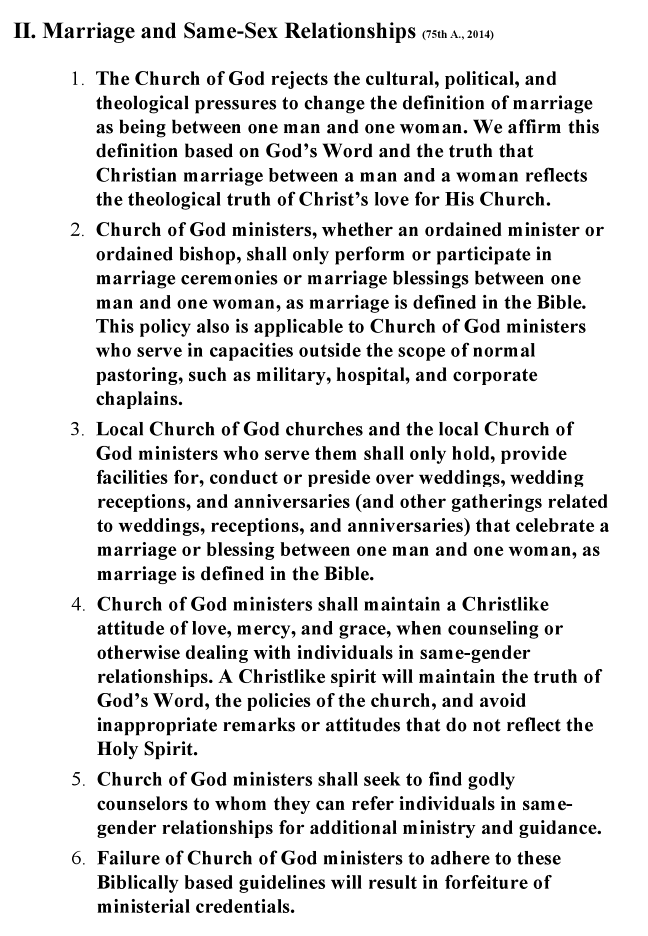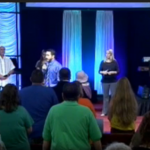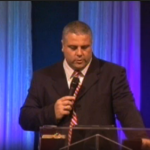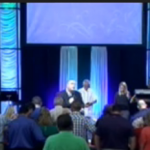The Work of the Spirit in Rhode Island (1874-75)
From B.F. Lawrence, “A History of the Present Latter Rain Outpouring of the Holy Spirit Known as the Apostolic or Pentecostal Movement,” The Weekly Evangel, 22 January 1916
NATO begins largest airborne training exercise since Cold War in Bulgaria
 Nato begins an airborne training exercise on August 24 in Bulgaria, Germany, Italy and Romania, the largest such combined airborne training on the continent since the end of the Cold War.
Nato begins an airborne training exercise on August 24 in Bulgaria, Germany, Italy and Romania, the largest such combined airborne training on the continent since the end of the Cold War.
As part of Exercise Swift Response 2015, which is being held from August 20 to September 13, Bulgaria is hosting a simulation of an airborne assault with paratroopers and landing of equipment. This is to take place around the Tenevo and Balchik airfields and at the Novo Selo training ground in Bulgaria. About 400 military personnel from the US, Italy and Bulgaria will be involved, using 12 C-130 aircraft, and 12 helicopters.
Bulgaria’s Defence Ministry said that south of Yambol, near the villages of Tenevo and Karavelovo and near Balchik municipality, there would be night flights at various heights. It was possible that residents would be bothered by the noise of the aircraft, the ministry said.
The US Army Europe said that Swift Response 2015 was designed to integrate multiple Allied nations’ high-readiness forces to operate as a cohesive team and demonstrate the Alliance’s capacity to rapidly deploy and operate in support of maintaining a strong and secure Europe.
The exercise is taking place in Germany, Romania, Bulgaria and Italy; and includes more than 4800 Soldiers from Bulgaria, France, Germany, Greece, Italy, the Netherlands, Poland, Portugal, Spain, the United Kingdom and the United States.
Swift Response 15 will include simultaneous airborne joint forced entries in to Germany’s Hohenfels Training Area and Bulgaria’s Novo Selo Training Area with follow-on training at both locations. The exercise will conclude in early September with multinational platoon and company live fire at the Grafenwöhr Training Area.
The US contingent will be led by headquarters elements from the Army’s XVIII Airborne Corps and the 4th Infantry Division Mission Command Element, and will include the Europe-based 173rd Airborne Brigade, and the US-based 1st Brigade, 82nd Airborne Division.
Swift Response 15 marks the first time the 82nd Airborne Division has operated in Europe since supporting NATO operations in Kosovo in 1999. The 1st Brigade, 82nd Airborne will assume responsibilities as the Army’s Global Response Force (GRF) from the 2nd Brigade, 82nd Airborne at the end of the year, with the mission of being able to deploy anywhere in the world within 96 hours of notification.
Why Revival Came? by Dr. Charles Conn
8 Things Christian Believers and Churches Can Do in Light of Recent SCOTUS Ruling on LGBT
1. State Level
- Contact your congressman/senator for available options. Write your governor without hesitation
- Texas Governor Greg Abbott signed a bill allowing clergy to refuse to officiate same sex ceremonies
- Texas Attorney General fights back against Supreme Court
- First Amendment Defense Act Sen. Mike Lee of Utah introduced
2. Personal Level
- Inform yourself and your family of the clear Biblical principles for love and holiness applicable in this situation
- Pray daily for the protection of your family and the salvation of many souls
- Be faithful to your husband/wife and children
3. Corporate Level
- Hold on to your Christian standards for doing business
- Support other Christian businesses
- Forgive and forget, but watch and pray
4. Local Church Level
- Join in corporate fasting and praying in the Spirit
- Uphold the Biblical standard of holy living
- Preach the truth as you have received it
- Adopt local church resolutions on the sanctity of the family
5. Denominational Level
- Adopt resolutions on the sanctity of the family applicable to all your churches internationally (not just North America)
- Adopt resolutions on same-sex marriages, transgender, abortions and all similar issues applicable to all your churches internationally (not just North America)
- Stand along members, ministers, local congregations and Christian schools under attack for upholding the Biblical standard of holy living
6. Christian Alliances Level
- Stay informed of all legal protests and options
- Learn about upcoming IRS changes and alternative exempt options
- Consult with legal council about your rights and obligations under the law
- Join with other Christians in legal measures for upholding the Biblical standard of holy living
7. International Organizational Level
- Beware of what Christian churches are doing internationally to protect their members, ministers, local congregations and Christian schools
- Examine your current tax status and consult your CPA, attorney and insurance agents about the various possibilities to protect your church and ministry
- 2015 ANGLICAN CHURCH Communique
- Methodist church Faces Schism Over Same-Sex Marriage
8. Get good insurance with adequate coverage and experience in the matter
• A good example from Brotherhood Mutual Ins.
READ ALSO:
- Statement of the Church of God Regarding Same-Sex Marriage Court Decision
- AFA: 3 things your church must do immediately to protect itself
- Church of God Instructions for Ministers: Marriage and Same-sex Relationship (75th A., 2014)
- SOUTHERN BAPTIST ADF PLAN TO RESIST ANTI-DISCRIMINATION LAWS
- Web-cached copy of ADF PLAN TO RESIST ANTI-DISCRIMINATION LAWS
- Brotherhood Mutual Ins: What should churches and ministries know?
- 6 More Things To Do after the Supreme Court Decision on Gay Marriage
- Why the church should neither cave nor panic?
- How Will the U.S. Supreme Court’s Same-Sex-Marriage Decision Affect Religious Liberty?
- Why Evangelical Churches Need to Address the New Reality?
- Will High-court ruling affect church weddings?
Church of God Instructions for Ministers: Marriage and Same-sex Relationship (75th A., 2014)
Church of God Instructions for Ministers: Marriage and Same-sex Relationship (75th A., 2014)
p. 158-159, S63. GENERAL INSTRUCTIONS FOR MINISTERS, by adding the following so as to read:
II. Marriage and Same-Sex Relationships
A. The Church of God rejects the cultural, political, and theological pressures to change the definition of marriage as being between one man and one woman. We affirm this definition based on God’s Word and the truth that Christian marriage between a man and a woman reflects the theological truth of Christ’s love for His Church.
B. Church of God ministers, whether an ordained minister or ordained bishop, shall only perform or participate in marriage ceremonies or marriage blessings between one man and one woman, as marriage is defined in the Bible. This policy also is applicable to Church of God ministers who serve in capacities outside the scope of normal pastoring, such as military, hospital, and corporate chaplains.
C. Local Church of God churches and the local Church of God ministers who serve them shall only hold, provide facilities for, conduct or preside over weddings, wedding receptions, and anniversaries (and other gatherings related to weddings, receptions, and anniversaries) that celebrate a marriage or blessing between one man and one woman, as marriage is defined in the Bible.
D. Church of God ministers shall maintain a Christ-like attitude of love, mercy, and grace, when counseling or otherwise dealing with individuals in same-gender relationships. A Christ-like spirit will maintain the truth of God’s Word, the policies of the church, and avoid inappropriate remarks or attitudes that do not reflect the Holy Spirit.
E. Church of God ministers shall seek to find godly counselors to whom they can refer individuals in same-gender relationships for additional ministry and guidance.
F. Failure of Church of God ministers to adhere to these biblically based guidelines will result in forfeiture of ministerial credentials.
What should churches and ministries know about the U.S. Supreme Court’s decision regarding same-sex marriage
SOURCE: Brotherhood Mutual Insurance Co
On June 26, 2015, the U.S. Supreme Court issued a 5-4 ruling, holding that the Fourteenth Amendment requires a state to license a marriage between two people of the same sex. The decision also requires states to recognize a marriage between two people of the same sex when their marriage was lawfully licensed and performed in another state.
The Case: Obergefell v. Hodges
This case began when a same-sex couple from Cincinnati, Ohio, filed a lawsuit alleging state discrimination against same-sex couples who have been lawfully married in another state. John Arthur was terminally ill and sought to name his partner, James Obergefell, as his surviving spouse, but was unable to do so under Ohio’s same-sex marriage ban. The Director of the Ohio Department of Health, Richard Hodges, was named as the defendant in the case. As the case made its way through the appellate courts, other same-sex couples joined in the complaint. And as the case continued to progress, the question before the courts became whether Ohio’s refusal to recognize marriages legally performed in other states violated the Fourteenth Amendment’s guarantees of equal protection and due process.
A Landmark Decision
In its decision, the Court began by recognizing the history of the subject of marriage, noting it is one of both “continuity and change.” The Court then applied the following reasoning in making its determination that the Fourteenth Amendment requires a state to license a marriage between two people of the same sex:
1) The fundamental liberties protected under the Due Process Clause of the Fourteenth Amendment extend to certain personal choices, and among those is the right to marry.
2) Because marriage is inherent in the concept of individual autonomy, supports a two-person union unlike any other in its importance to the individuals involved, safeguards children and families, and is the “keystone of the Nation’s social order,” marriage is a constitutional right.
3) The right of same-sex couples to marry also is derived from the Fourteenth Amendment’s guarantee of equal protection.
4) Because the right to marry is a fundamental right “inherent in the liberty of the person, and under the Due Process and Equal Protection Clauses of the Fourteenth Amendment,” couples of the same sex may not be deprived of that right and that liberty.
The Religious Organization “Carve Out”
The Court then added a “carve out” for “religions and those who adhere to religious doctrines” by stating:
Finally, it must be emphasized that religions, and those who adhere to religious doctrines, may continue to advocate with utmost, sincere conviction that, by divine precepts, same-sex marriage should not be condoned. The First Amendment ensures that religious organizations and persons are given proper protection as they seek to teach the principles that are so fulfilling and so central to their lives and faiths, and to their own deep aspirations to continue the family structure they have long revered. The same is true of those who oppose same-sex marriage for other reasons. In turn, those who believe allowing same-sex marriage is proper or indeed essential, whether as a matter of religious conviction or secular belief, may engage those who disagree with their view in an open and searching debate. The Constitution, however, does not permit the State to bar same-sex couples from marriage on the same terms as accorded to couples of the opposite sex.
Chief Justice Roberts and Justice Thomas noted in their dissents that the First Amendment guarantees the right to “exercise” religion. Chief Justice Roberts further noted that “exercise” is a word that the majority omitted from their opinion. So while this provision acknowledges the First Amendment rights of religious organizations to teach principles that are central to their lives and faiths, the dissenting justices expressed concern that it may not be broad enough to encompass the full exercise of those rights.
Chief Justice Roberts also noted that, “Hard questions arise when people of faith exercise religion in ways that may be seen to conflict with the new right to same-sex marriage.” He then offered the following examples:
1) A religious college that provides married student housing only to opposite-sex couples.
2) A religious adoption agency that declines to place children with same-sex married couples.
3) The tax-exempt status of some religious institutions that oppose same-sex marriage.
Chief Justice Roberts went on to state that there is “little doubt that these and similar questions will soon be before this Court.” It seems likely that future cases will ultimately determine the full scope and effect of this decision for churches and other religious organizations.
So What Does This Mean for Churches?
This ruling does not appear to take away any of the rights that religious organizations currently have under the law. Still, the ruling leaves unanswered questions that may lead to confusion and concern for ministries. Common concerns include whether a pastor must perform a same-sex wedding ceremony, whether a church must make its facilities available for same-sex wedding events, and if a church must provide same-sex spousal benefits to employees.
Communicate Expectations to Limit Lawsuits
All ministries should have biblically based beliefs and policies documented in the bylaws, articles, and other foundational documents of the organization. Stating the ministry’s beliefs, along with applicable reference to scripture in governing documents, can help avoid claims of improper discrimination. Churches and ministries will do well to clearly communicate that the ministry’s positions and policies are based on sincerely held religious beliefs.
Statement of belief: Include a statement of the ministry’s spiritual beliefs within the organization’s governing documents or bylaws. This lays the foundation for the ministry to operate in accordance with its stated beliefs.
Consistent response: If the church or ministry treats an individual or a group of people differently than it does another person or group, the odds of the ministry losing a lawsuit increase significantly. For example, if the organization offers its event center for rent to the general public yet declines to allow a same-sex couple to rent the facility, the individual whom the church declined may have a valid claim of discrimination.
Take Steps to Avoid a Lawsuit
To reduce the likelihood of an individual bringing a successful same-sex-related lawsuit against your church or ministry, consider the following steps:
1) Include a spiritual purpose provision in your governing documents/bylaws. Be sure your organizational governing documents clearly state your ministry’s spiritual purpose, your reliance on scripture, and the intent to advance the ministry in accordance with scripture. Where appropriate, quote scripture within the purpose statement.
2) Include a morals clause in your employee handbook. Be sure your employee handbook includes a policy telling your organization’s employees that the church expects them to support its spiritual purpose and behave in accordance with it. Including such a clause in your handbook, when applied consistently, can go a long way toward protecting the church from employment-related lawsuits.
3) Respond with sensitivity. Train your clergy, staff, and volunteers to approach individual needs and requests with empathy. Although you cannot meet every request or demand, the manner in which you convey your response is sometimes as important as what you have decided.
4) Consult with local counsel. When revising organizational documents and ministry policies and procedures, involve a local attorney. A wide variety of federal, state, and local laws apply to employment and facilities use, and consulting with a local attorney can provide guidance on any state-specific and local legal issues that you may encounter. You also should contact your attorney and your insurance agent any time you anticipate a claim against the church.
All ministries, whether supportive of same-sex unions or not, should recognize and understand the potential impact of this ruling. Following the steps listed above can help ministries continue to operate in accordance with their sincerely held religious beliefs and avoid claims of improper discrimination. Contact a local attorney for assistance with creating policies and procedures and for help in understanding how the law applies to your ministry.
Download a PDF version of this article.
Regional Church of God



